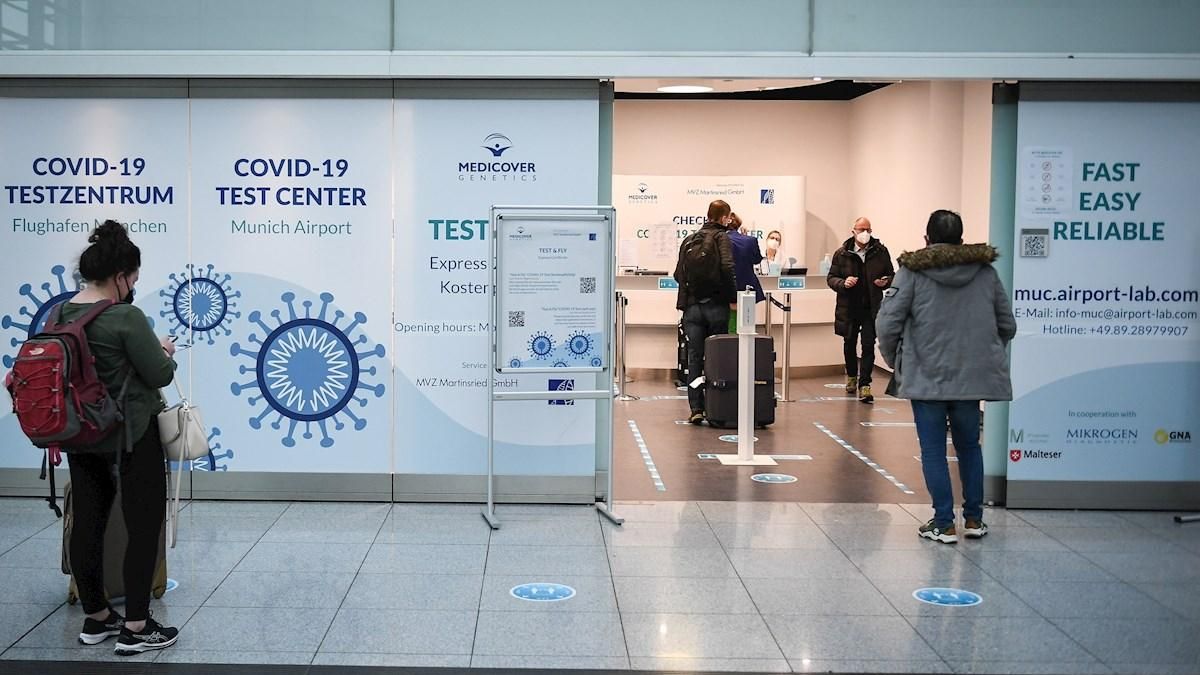The health authorities of the most populated state of Australia, New South Wales, said that two passengers arriving in Sydney from southern Africa on Saturday night had tested positive for the Omicron variant of the coronavirus.
Both were asymptomatic, fully vaccinated and in quarantine, NSW Health said. Another 12 passengers from southern Africa were also quarantined in a hotel for 14 days, while another 260 and the crew were ordered to isolate themselves.
The Australian cases are the latest indication that the variant may be difficult to contain. First discovered in South Africa, it has since been detected in the United Kingdom, Germany, Italy, Belgium, Botswana, Israel, and Hong Kong.
Austria was investigating a suspicious case on Sunday, and in France, Health Minister Olivier Veran said the new variant was probably already circulating.
The discovery of Ómicron, described as a “worrying variant” by the World Health Organization (WHO), has raised worldwide concern that it may resist vaccines and prolong the nearly two-year Covid-19 pandemic.
Ómicron is potentially more contagious than the previous variants, but experts still do not know if it causes a more or less severe Covid-19 compared to other strains.
Several countries have imposed a wave of travel bans or restrictions on southern Africa.
Financial markets had tumbled on Friday as investors worried that the variance could slow the global recovery. Oil prices fell about $ 10 a barrel.
On Sunday, most Gulf stock markets fell sharply in early trading, and the Saudi index suffered its biggest daily decline in nearly two years.
In the most far-reaching effort to keep the variant at bay, Israel announced late on Saturday it would ban all foreigners and reintroduce anti-terrorist phone tracking technology to contain the spread of the variant.
The first Minister Naftali Bennett He said the ban, pending government approval, will last 14 days. The authorities hope that in that period there will be more information on the effectiveness of the omicron vaccines.
Many countries have imposed or are planning travel restrictions from southern Africa.
The South African government on Saturday denounced this measure as unfair and potentially damaging to its economy, stating that He is being punished for his scientific ability to identify coronavirus variants early.
In the United Kingdom, where two cases linked to Ómicron identified on Saturday were related to travel to southern Africa, the government announced measures to try to contain the spread, including stricter standards of testing for people arriving in the country and the requirement of face masks in some settings.
British Health Minister Sajid Javid said on Sunday that he looked forward to receiving immediate advice on whether the government can expand a program to supply booster vaccines to fully vaccinated people, to try to weaken the impact of the variant.
The German state of Bavaria also announced two confirmed cases of the variant on Saturday. In Italy, the National Institute of Health said a case of the new variant had been detected in Milan in a person from Mozambique.
Although epidemiologists claim that travel restrictions may be too late to prevent the circulation of variants, many countries – including The United States, Brazil, Canada, European Union nations, Australia, Japan, South Korea and Thailand – have announced bans.
More countries joined on Sunday, including Indonesia and Saudi Arabia.
Ómicron appears as many countries in Europe are already fighting an increase in Covid-19 infections, and some have reintroduced restrictions on social activity to try to stop the spread.
The new variant has also revealed the huge disparities in vaccination rates all over the world. Even as many developed countries are giving third-dose boosters, less than 7% of people in low-income countries have received their first injection, according to human rights and medical groups.
Seth Berkley, CEO of the GAVI Vaccine Alliance, which together with WHO leads the COVAX initiative to drive equitable distribution of vaccines, said this was essential to prevent the emergence of more variants of the coronavirus.
Source From: Ambito
David William is a talented author who has made a name for himself in the world of writing. He is a professional author who writes on a wide range of topics, from general interest to opinion news. David is currently working as a writer at 24 hours worlds where he brings his unique perspective and in-depth research to his articles, making them both informative and engaging.




